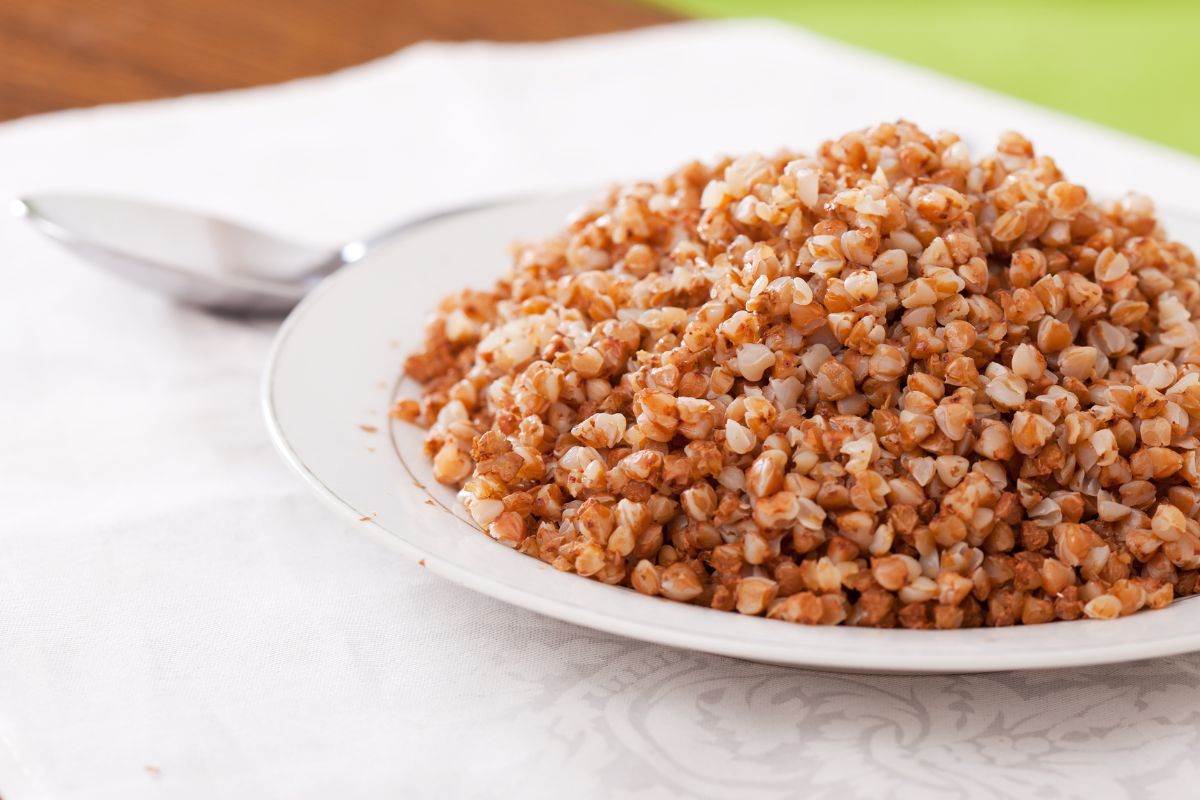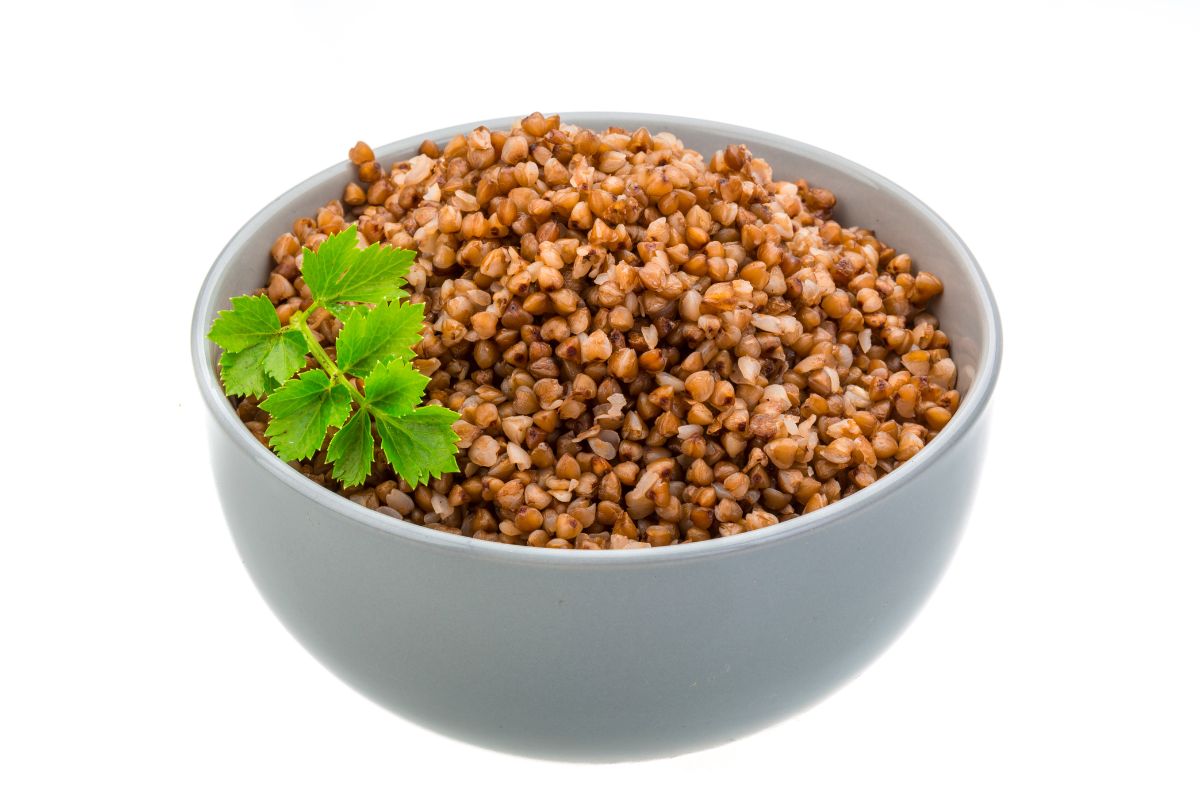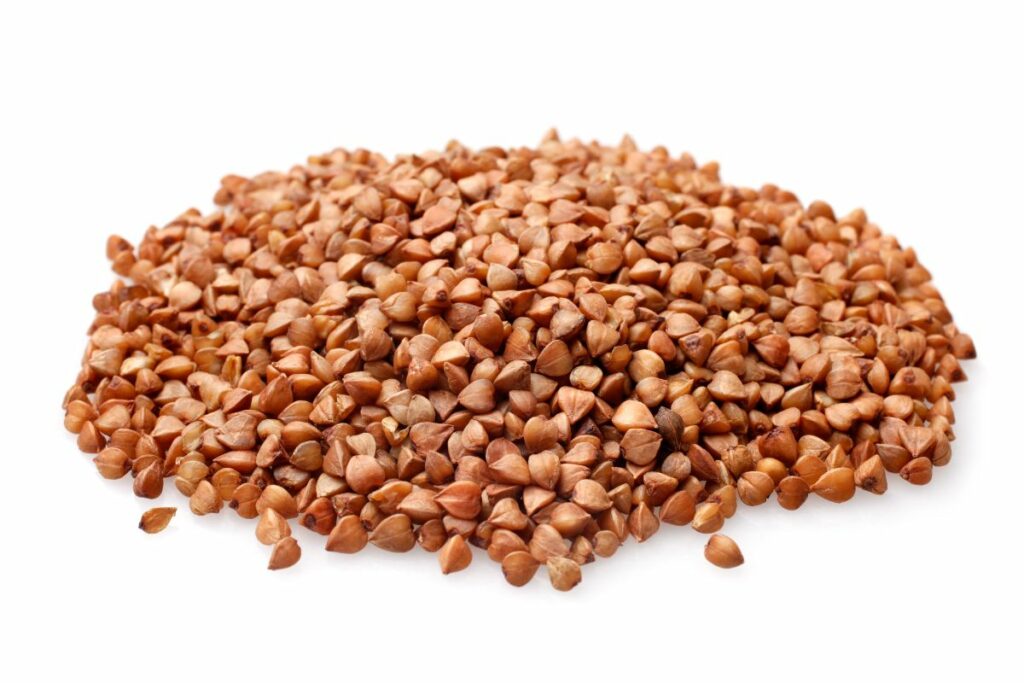Buckwheat has become very popular over the years due to its health benefits and is known to offer a number of advantages to health and general overall well-being.
But is buckwheat really healthier than regular wheat, as some claims suggest? We took a closer look at the science behind buckwheat, and put together everything you need to make smart, informed choices about your diet that benefit your health.
What Is Buckwheat?
Buckwheat is actually not a grain, but rather a fruit seed belonging to the rhubarb family (Polygonaceae). It’s also called kasha or groats in other parts of the world.
The seeds are oval-shaped with a brown outer shell and white inner kernel. They grow in clusters on stems up to 2 feet tall. Buckwheat is native to China, Japan, Korea, and Russia.
There are two main types of buckwheat: common and tartary. Common buckwheat is grown for food use, while tartary buckwheat is used primarily for medicinal purposes.
Both have similar nutritional profiles, although they do differ slightly in terms of their protein content.
How Is Buckwheat Different From Regular Wheat?

Buckwheat offers a few differences to regular wheat, and some of the key points of departure include:
Lower Levels Of Gluten
Gluten is an important component of wheat that gives it elasticity and helps it hold water. However, gluten can be difficult to digest for people who suffer from celiac disease or gluten sensitivity.
In fact, many people with these conditions find that eating foods containing gluten causes them to experience symptoms such as bloating, gas, diarrhea, constipation, and abdominal pain.
Because buckwheat doesn’t contain gluten, it’s easier to digest for those with gluten sensitivities. This means that it may help reduce the risk of developing certain digestive problems like irritable bowel syndrome.
High Fiber Content
The fiber content of buckwheat is higher than that of most grains. A serving of 100 grams of buckwheat contains more than twice the amount of dietary fiber found in a serving of whole wheat bread.
This makes it a great option for anyone looking to boost their daily fiber intake. A study showed that buckwheat flour had significantly lower levels of starch hydrolysis compared to wheat flour.
This suggests that buckwheat could potentially provide a better source of energy than wheat.
Higher Protein Content
The protein content of buckwheat varies depending on how it’s processed. When raw buckwheat is ground into flour, it typically contains around 10 percent protein by weight.
However, when the flour is milled into a coarse meal, it increases to 20 percent.
This high protein content makes buckwheat a good choice for vegans and vegetarians. It’s also a rich source of lysine, which is one of the essential amino acids needed for growth and development.
Low Glycemic Index
The Glycemic index measures how quickly carbohydrates raise blood sugar levels after consumption. Foods with a low glycemic index tend to cause less of a spike in blood glucose levels.
This is because they take longer to break down in the body, so they’re digested more slowly. As a result, they don’t trigger insulin spikes as much as foods with a higher glycemic index.
In general, buckwheat has a relatively low glycemic index, making it a healthy alternative to traditional wheat flour.
Health Benefits Of Buckwheat

Here are just a few of the health benefits associated with consuming buckwheat:
1. Lower Risk Of Heart Disease
According to research buckwheat might offer protection against heart disease. The researchers studied over 1,000 Japanese men and women between the ages of 40-69.
They found that those who ate buckwheat every day were less likely to develop coronary artery disease.
2. Help Prevent Cancer
According to one study, buckwheat may protect against cancer. Researchers looked at the diets of nearly 2,500 adults aged 50 years old and older living in Japan.
They found that those whose diets included buckwheat were less likely to have developed stomach cancer.
3. Better Digestion
Buckwheat is often recommended as a natural remedy for gastrointestinal disorders. One reason for this is its ability to improve digestion, and this is achieved by increasing the production of bile salts.
Bile salts are produced by the liver and aid in the breakdown of fats, and aid digestion by emulsifying fat molecules.
This causes them to mix together with water, forming small droplets that can be easily absorbed through the walls of your digestive tract.
4. High In Iron And Magnesium
Buckwheat contains high amounts of iron and magnesium. These minerals help maintain bone density and muscle strength and are important for overall health.
5. May Improve Blood Sugar Levels
One study found that eating buckwheat was linked to improved blood sugar control. Participants in the study consumed either 100 grams of buckwheat or white bread daily for four weeks.
Afterward, their blood sugar levels were measured. Those who ate buckwheat saw significant decreases in their fasting blood sugar levels.
6. Good Source Of Folate
Folic acid helps prevent birth defects such as spina bifida and anencephaly. It also plays a role in cell division and DNA synthesis.
7. Rich In Antioxidants
Antioxidants are compounds that neutralize harmful free radicals in the body. Free radicals are unstable atoms that can damage cells and lead to chronic diseases like cancer.
8. Contains Lignans
Lignans are plant compounds that act as antioxidants. They are thought to reduce the risk of breast cancer and other types of cancer.
9. Aids Weight Loss
Research suggests that buckwheat may promote weight loss. This is due to the fact that it’s rich in fiber and protein, which makes you feel fuller faster.
Are There Any Downsides To Buckwheat?

There are some downsides to eating buckwheat, however. For example, there is evidence that people with celiac disease should avoid eating buckwheat because they cannot tolerate gluten.
Also, buckwheat does not contain any lysine, so if you’re on a diet where you need to limit your intake of proteins, then you will want to stay away from buckwheat.
Some individuals have reported a few common side effects, and these include the following:
Bloating
Unwelcome bloating appears to be a common side effect of consuming buckwheat. Some people experience bloating after eating buckwheat, and this is likely caused by the presence of rutin, a type of flavonoid that increases intestinal gas.
Headaches
Another potential downside of eating buckwheat is headaches. The cause of this side effect is unknown, but researchers believe that buckwheat has a similar chemical composition to wheat, and therefore may trigger allergies in some people.
Constipation
A third possible side effect of eating buckwheat includes constipation. This could occur if you consume too much buckwheat at once, or if you eat buckwheat regularly without taking adequate breaks between meals, and is thought to be due to the insoluble dietary fiber content of buckwheat.
Stomach Cramps
Lastly, another possible side effect of eating too much buckwheat is stomach cramps. This occurs when the soluble fiber content of buckwheat triggers excessive bowel movements.
Final Thoughts
Overall, buckwheat is a healthy grain option that offers many benefits. On the whole, it appears to emerge as the healthier option when compared to regular wheat, though it is important to be aware that unwanted side effects can and do occur.








